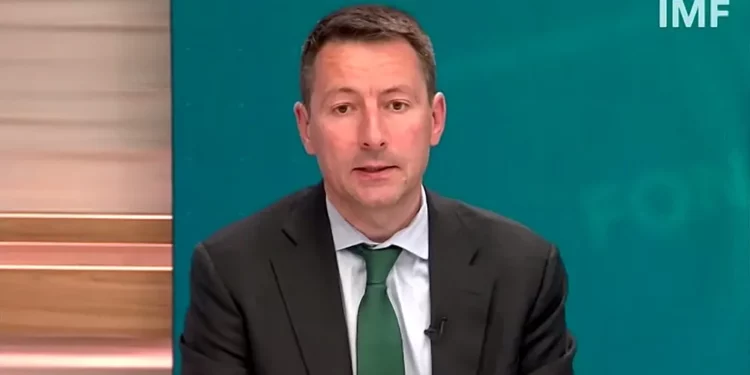IMF Endorses Ghana’s Energy Sector Reforms as Vital to Economic Stability
The International Monetary Fund (IMF) has backed the assessment by Ghana’s Finance Minister that inefficiencies in the energy sector represent the country’s most significant economic risk. Mr Stéphane Roudet, IMF Mission Chief for Ghana, confirmed the Fund’s long-standing concerns over the sector’s financial imbalances, stressing that energy sector reform remains a central pillar of Ghana’s ongoing IMF-supported program.
Responding to a question from the Managing Editor of NorvanReports, Norvan Acquah-Hayford, at the sidelines of the IMF Spring Meetings in Washington, D.C., Mr. Roudet noted that the sector’s problems, particularly the gap between revenues collected by the Electricity Company of Ghana (ECG) and the actual costs of power generation, have been a critical focus since the program’s inception.
“We knew from the beginning of the program that there were challenges related to the energy sector,” Mr. Roudet stated. “The main challenge is that you have a large difference between what ECG can collect in terms of bills and the costs that are generated in the sector— that’s what we refer to as the energy sector shortfall.”
To address this, the IMF and Ghanaian authorities agreed early on to bring the full size of the energy sector shortfall onto the national budget, a move aimed at ensuring transparency and fiscal accountability. Previously, the shortfall functioned as an implicit subsidy, hidden off the government’s official balance sheets.
Beyond transparency, the Fund and the government have outlined a series of structural reforms aimed at shrinking the shortfall over time. He acknowledged that while some progress had been made, the sector’s challenges intensified during the third program review in late 2024, as arrears continued to mount, particularly debts owed by ECG to fuel suppliers and independent power producers (IPPs).
“These arrears are a very significant challenge for Ghana, given the implications they can have for power supply stability,” Mr. Roudet warned.
In response to the worsening situation, the IMF and Ghana’s authorities agreed to elevate several energy sector reforms to formal program conditions during last year’s review cycle. With a new government now in place, Mr Roudet said there had been strong indications of renewed commitment to these reforms.
“The new government is very committed to accelerating the reforms to tackle the energy sector challenges,” he said. “They will not be resolved overnight because the size of the shortfall is large, but we are seeing a real determination to move faster.”
One of the cornerstone reforms currently underway is the introduction of private sector participation in ECG’s operations. Mr Stéphane Roudet described this initiative as “very promising”, emphasising its potential to improve revenue collection, curb commercial losses, and restore financial health to Ghana’s power sector.
In conclusion, Mr. Roudet reiterated that while the energy sector challenges remain profound, the commitment of the new administration to pursue accelerated reforms, combined with IMF support and conditionality, provides a credible path toward reducing fiscal risks emanating from the sector.








